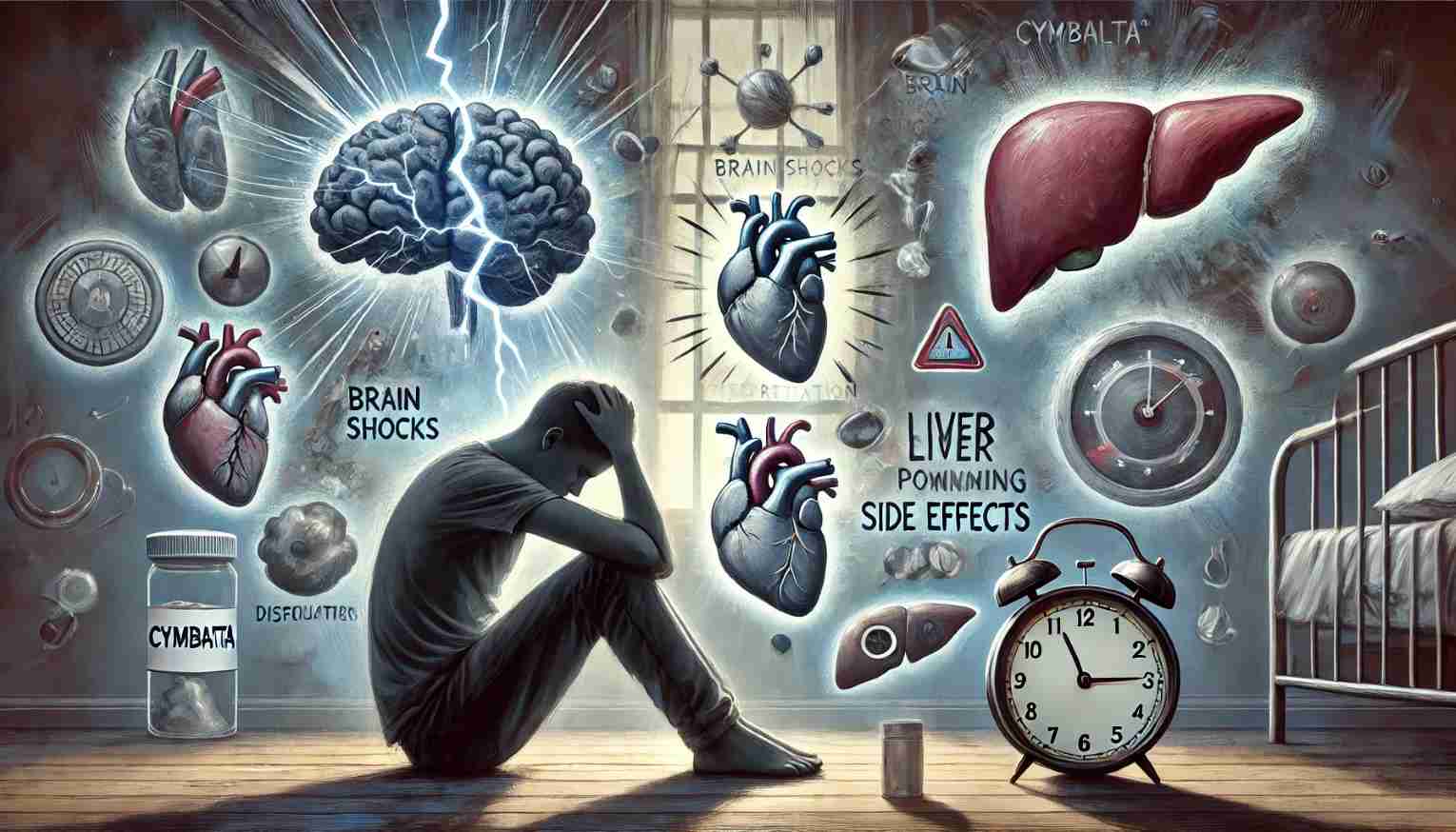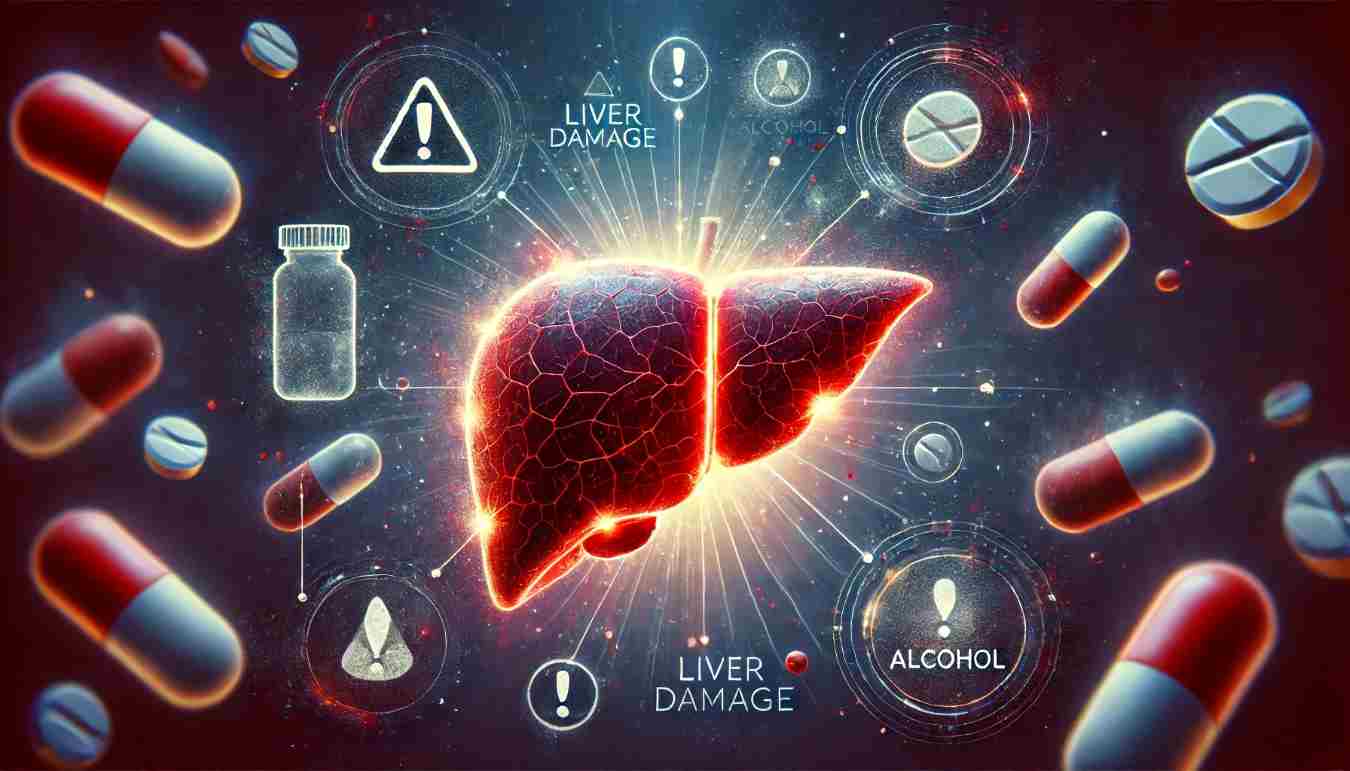Health
7 ‘Cymbalta Ruined My Life’ Side Effects You Should Know About

Cymbalta, known generically as duloxetine, is a medication commonly prescribed for conditions such as depression, anxiety, and chronic pain. While it offers relief for many, some individuals have reported severe side effects, leading them to express sentiments like “Cymbalta ruined my life.” Understanding these potential adverse effects is crucial for anyone considering or currently undergoing treatment with this drug.
1. Severe Withdrawal Symptoms
Substantial withdrawal effects occur if Cymbalta is stopped suddenly; the condition is referred to as antidepressant discontinuation syndrome. People have experienced lightheadedness, vomiting, vertigo, headache, as well as buzz, which some refer to as brain shocks or pings.
These side effects can develop several days after ceasing treatment and may last several weeks, though they tend to be worse among those who took high doses or were on the meds for a long time. To reduce these effects, one is supposed to seek the doctor’s permission before adjusting the dosage. It is normally suggested that the subject should take this dosage for a period of time and then gradually scale down to reduce withdrawal effects.
2. Emotional Numbness and Cognitive Impairment
According to some of the users Cymbalta has caused emotional blunting or numbness. This state can impair the ability to feel emotions and can have an impact on personal relationships and overall quality of life. Cognitive impairments, including memory problems and problems of concentration, are also noted.
In most cases these side effects are really distressing because they can affect your ability to function normally and professionally. If such symptoms do occur, it’s important to talk to a healthcare provider, as an adjustment in the treatment may be needed.
3. Sexual Dysfunction
Many antidepressants, like Cymbalta, come with sexual side effects. Disinterest in sex (low libido), trouble getting aroused, and problems with orgasm are possible outcomes in both men and women. Intimate relationships can strain and appear to decrease self esteem.
In fact, some sexual side effects of these medications may not disappear even after the prescription is no longer taken, a condition called post-SSRI sexual dysfunction (PSSD). Talking with a healthcare provider about these concerns can begin to resolve them, and other treatments may be available.

4. Liver Damage
Liver damage has been linked with Cymbalta, especially in people who already have problems with their liver or are drinking huge amounts of alcohol. Jaundice (yellowing of the skin or eyes), dark urine, and upper abdominal pain are some symptoms of liver issues. For people taking Cymbalta in the long term, regular monitoring of liver function is advised. In case of any of the signs of liver damage, you should immediately meet a doctor.
5. Increased Blood Pressure and Heart Rate
Cymbalta may increase heart rate and blood pressure among some patients. Often, these changes are a risk for adolescents who already have a heart condition or a family history of heart problems. Blood pressure should be checked regularly while being treated. Your healthcare provider may adjust the dosage or choose a different medicine to try if you have significant increases.
6. Suicidal Thoughts and Behaviors
Cymbalta contains a Boxed Warning about an increased risk of suicidal thoughts or behaviour in children, adolescents and young adults taking antidepressants. Patients and their families need to be on the lookout for sudden changes in mood, behavior, thoughts, or feelings.
It is necessary to contact a healthcare provider immediately if such symptoms should arise. If managed and mitigated by ongoing open communication with medical professionals, these risks can be managed.
7. Serotonin Syndrome
Serotonin syndrome is a potentially life threatening condition where an excess of serotonin is in the brain. Cymbalta can interact with other medications that raise serotonin levels and can cause this. Common symptoms are confusion, rapid heart rate, dilated pupils, muscle rigidity, and ultimately loss of consciousness.
If you suspect you’ve experienced serotonin syndrome, seek immediate medical attention. Having healthcare providers know about all medications and supplements taken, is important to prevent this condition and harmful interactions.
The Bottom Line
Cymbalta is a good treatment for some medical conditions, but it’s important to know what can be potentially dangerous. The risk of this medication can be managed through regular communication with the healthcare providers, monitoring for signs of adverse reactions, and following the guidelines prescribed. Seeking medical advice as soon as any severe side effects are experienced is important to help ensure safety and well-being.

-

 Celebrity8 months ago
Celebrity8 months agoThe Private World of Marina Pearl LeBlanc, Matt LeBlanc’s Only Child
-

 Life Style1 year ago
Life Style1 year agoWho is Amra Nor Jenkins? The Untold Story About Jeezy’s Daughter
-

 Entertainment1 year ago
Entertainment1 year agoWhat is Shoujo Ramune? The Comprehensive Guide
-

 Celebrity1 year ago
Celebrity1 year agoThe Untold Truth of William Mapel: A Deep Dive into His Personal Life
-

 Celebrity1 year ago
Celebrity1 year agoWho is Christina Erika Carandini Lee? Everything About Christopher Lee’s Daughter
-

 News1 year ago
News1 year agoRanch World Ads Review: Everything You Need to Know
-

 Celebrity1 year ago
Celebrity1 year agoThe Untold Story of Denika Kisty: Her Family, Net Worth, and More
-

 Celebrity1 year ago
Celebrity1 year agoWho Is Stephanie Sarkisian? All You Need To Know AboutSteve Sarkisian’s Ex-Wife











